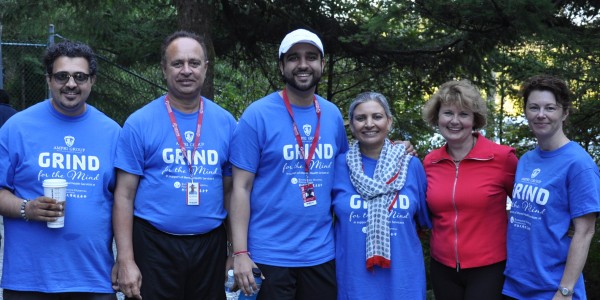Improving patient experience at Richmond MH&A
Below is the June 26 submission to the Richmond Review from Natalie Meixner, president and CEO, Richmond Hospital Foundation.
You can also read it online here.
Richmond is making a difference in mental health
In life there’s a mountain for all of us to climb, and climbing that mountain requires each of us to be in good health, both physical and mental, to reach the peak, achieve our goals and lead rewarding lives with our loved ones.
While physical health may seem more obvious to us or be easier to understand, mental health is an equally vital component of our overall health and well being.
Mental health issues affect Canadians of all ages, gender, culture, education and income levels. One in five people in our community face mental health challenges. And that often places numerous stresses not only on the patients, but also on their families who are often front-line caregivers.
Overcoming mental illness takes a team with the right people, tools, programs and investment to provide treatment that lead to better outcome. Thanks to donors, Richmond Hospital has been able to begin to move towards a new model of care.
I’d like to introduce to you Dr. Peter Gibson who is the head of psychiatry and medical director for VCH Richmond Mental Health and Addictions. Dr. Gibson has been here for four-and-a-half years, and he’s part of the compassionate, caring team at Richmond Hospital that is implementing exciting changes.
Here’s what’s happening in Dr. Gibson’s own words:
“To help achieve better outcomes in mental health for all, we are making great strides towards a new model of care that reflects best practices in person and family-centred care. Families often play a vital role in health promotion and recovery. We all recognize the many challenges and impacts of mental health on families and so we have put in place a number of initiatives towards implementing this new model of care called Person and Family-Centred Care.
“This model reflects the fact that better treatment results when both persons with lived experience and their families are able to be true partners in developing, delivering and evaluating care.
“With the help of important donor funding, we have been able to reach vital milestones towards implementing this new model across our inpatient and community programs in Richmond.
“Key achievements for us included a comprehensive assessment in August 2014 as we welcomed a consultant from the Institute for Person and Family Centered Care in Bethesda, Maryland who provided suggestions and a report, which served as a road map on how to improve our services.
“We also participated in the sixth annual IPFCC International Conference held in Vancouver to learn about new approaches and how to better understand and address issues in person and family centred care.
“In 2014, our staff implemented a program called ‘Releasing Time to Care,’ which improves systems and processes to increase the amount of time that health care providers spend directly caring for and communicating with clients and families.
“Last year Richmond Mental and Health and Addictions staff started to implement the key recommendations of the assessment report. In addition, an orientation video was developed for new staff to introduce the model and the importance of partnership with clients and families.
“We are very proud to have begun a steering committee which includes persons with lived experience, family members, clinicians, mental health and addiction service leaders and academic partners. The group met for the first time in February this year and will work on prioritizing more changes to improve the quality of care we provide.
“With these achievements, we now look forward to the next steps required for full implementation, which include a dedicated leader to support service providers to implement the new model with doctors, nurses, persons with lived experience and families, creating education tools and resources for staff, and developing an academic partnership so that all of this work can be shared as best practices with other health care institutions and organizations.
“Donor funding is making huge impacts to help us achieve better outcomes in recovery for persons with lived experiences and their loved ones. We are excited about the future of care here in Richmond.”
Interested in making a difference?
Join Grind for the Mind on Saturday, Sept. 12 to climb Grouse Mountain and improve care. Registration is now open.
Please visit www.grindforthemind.com.

